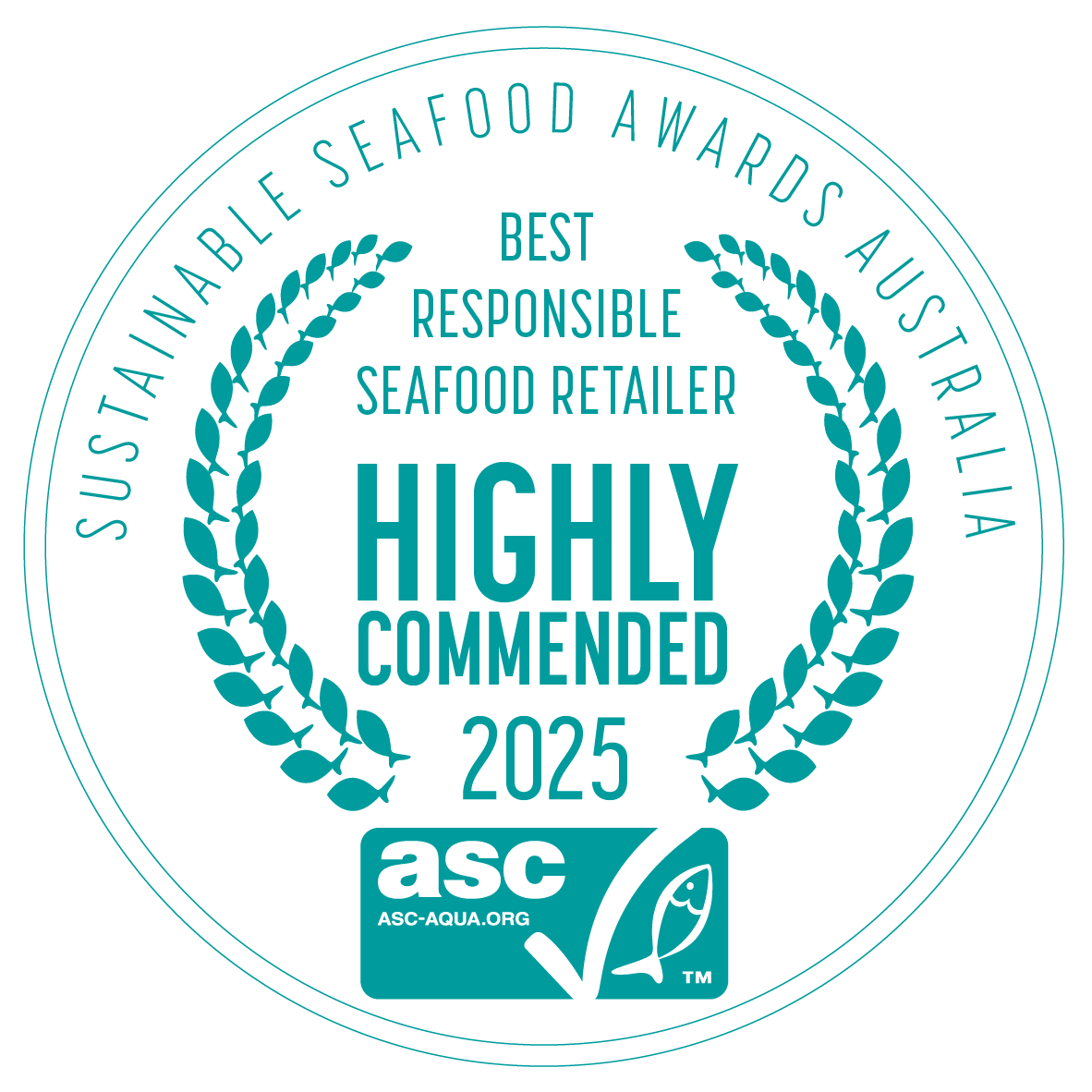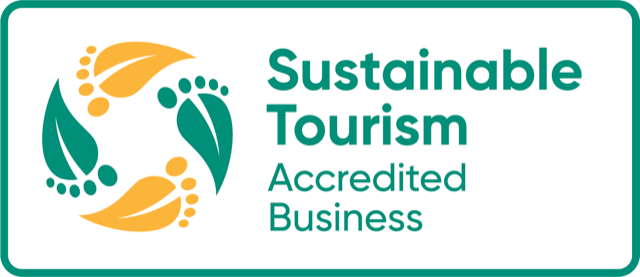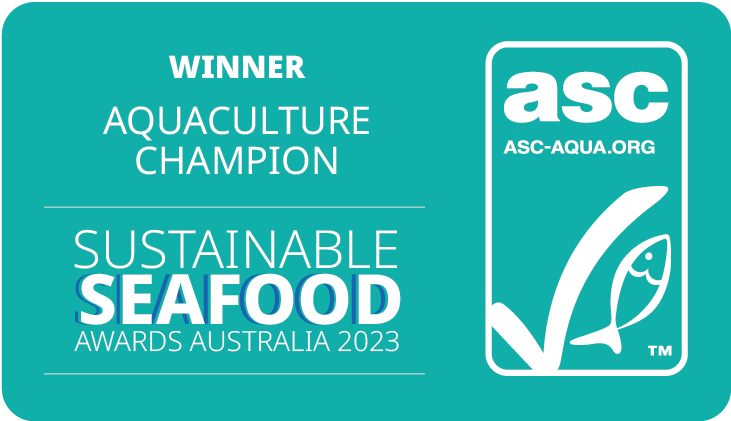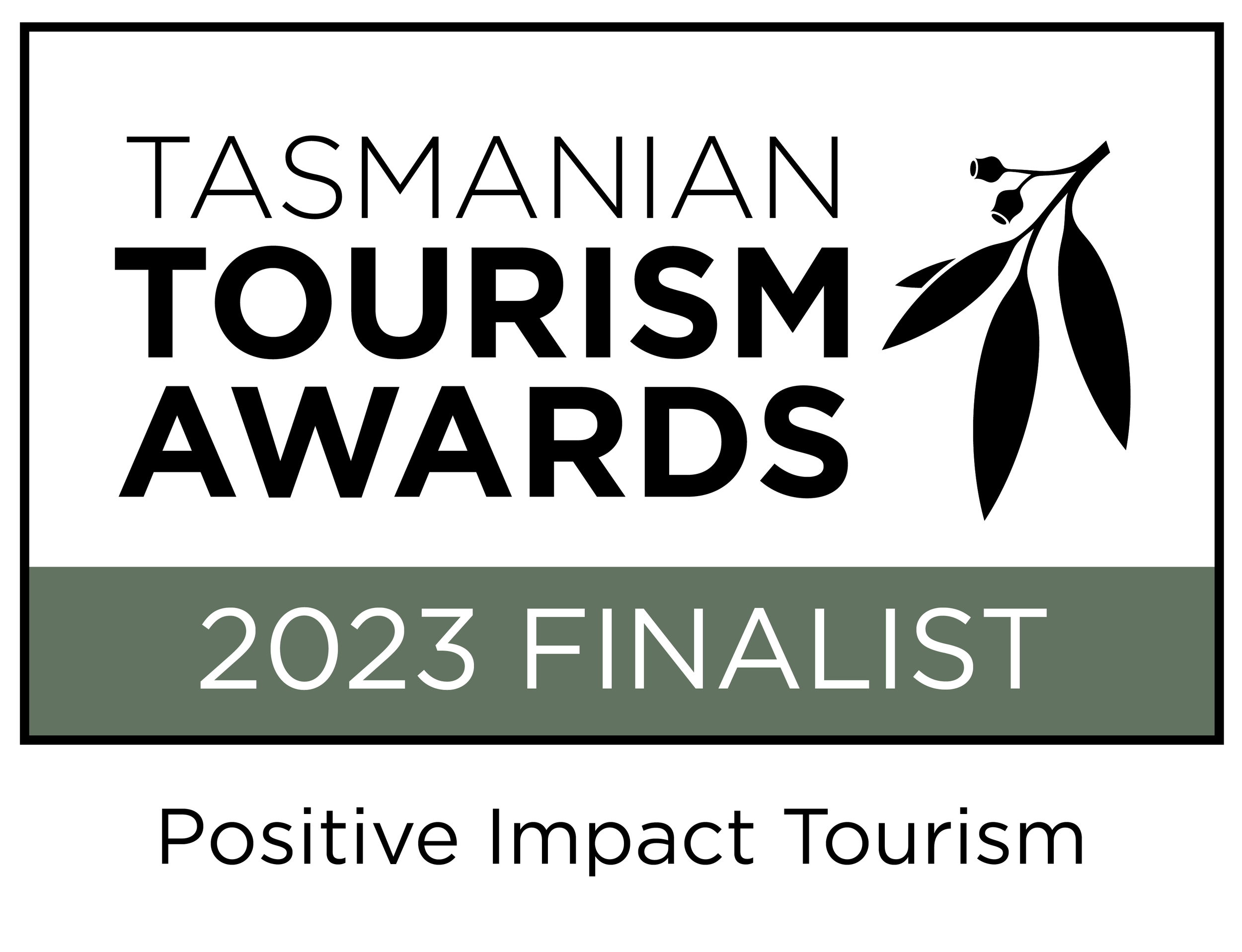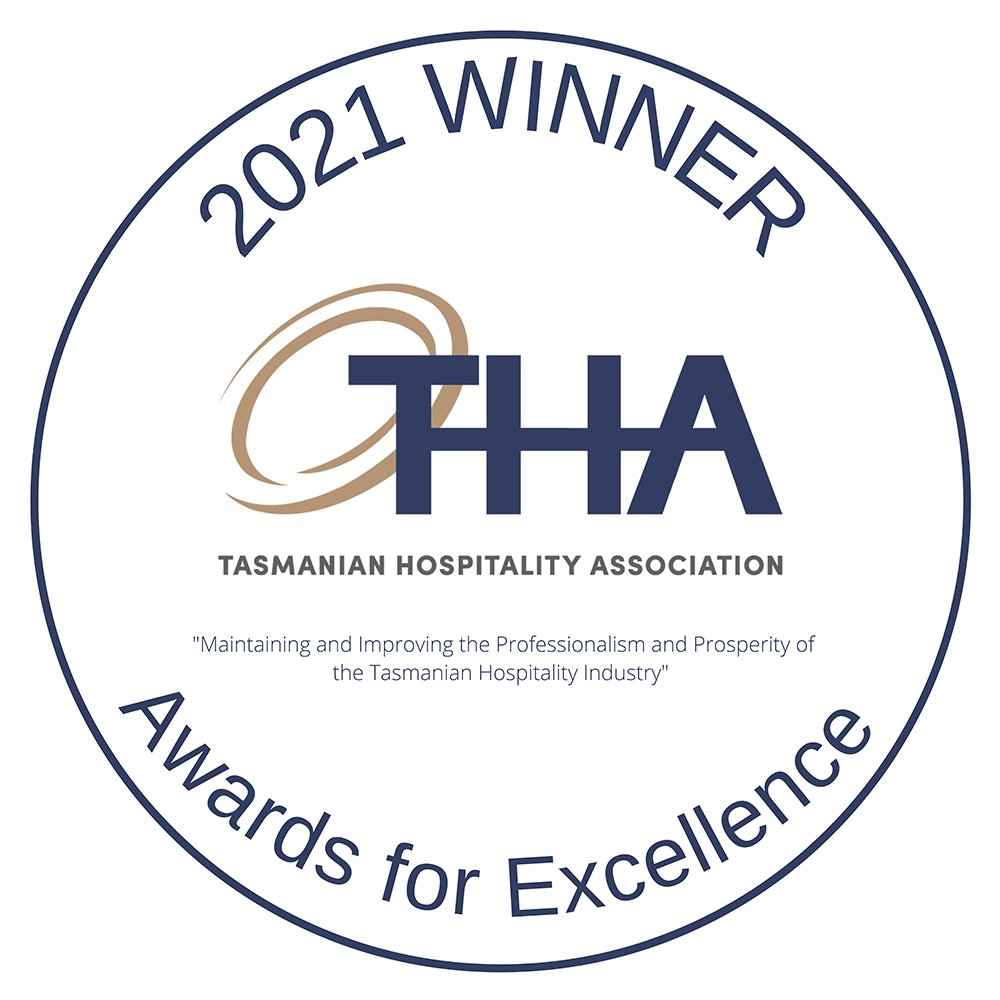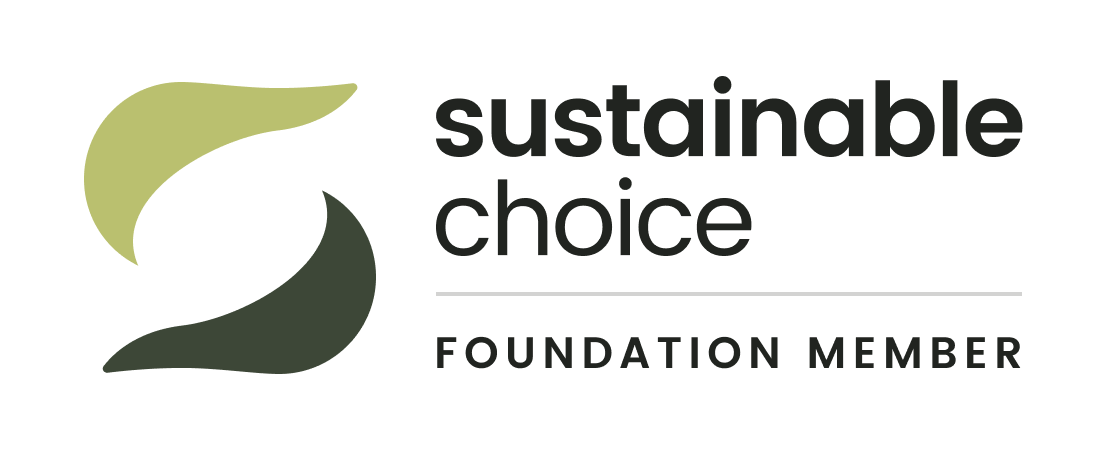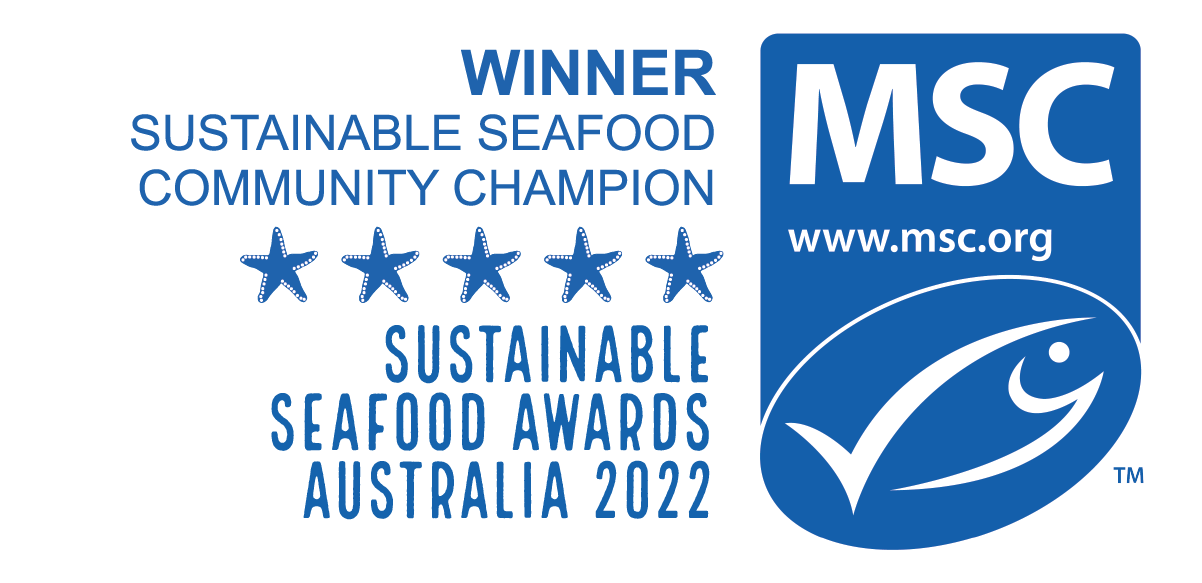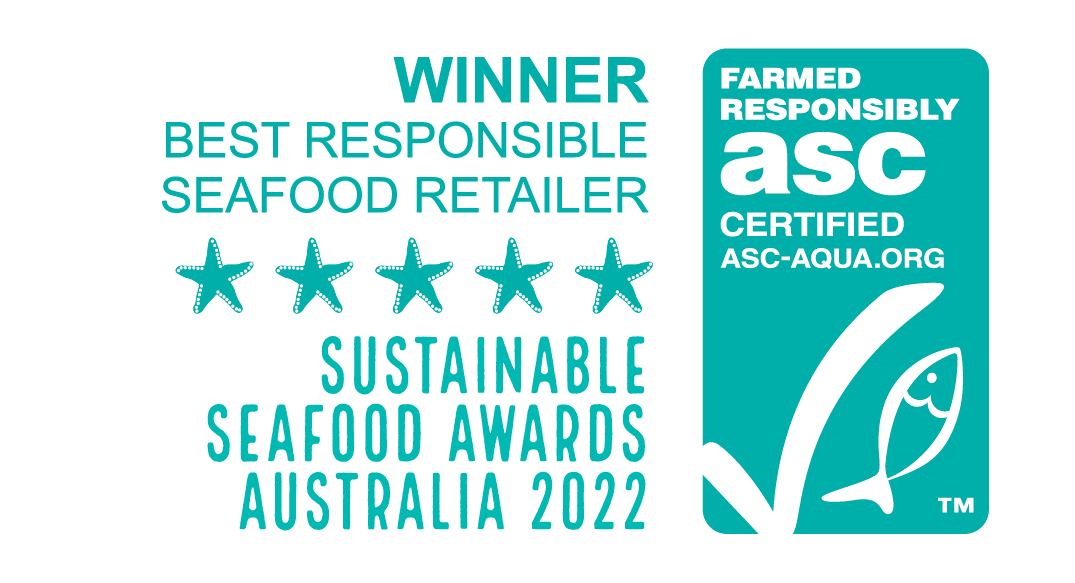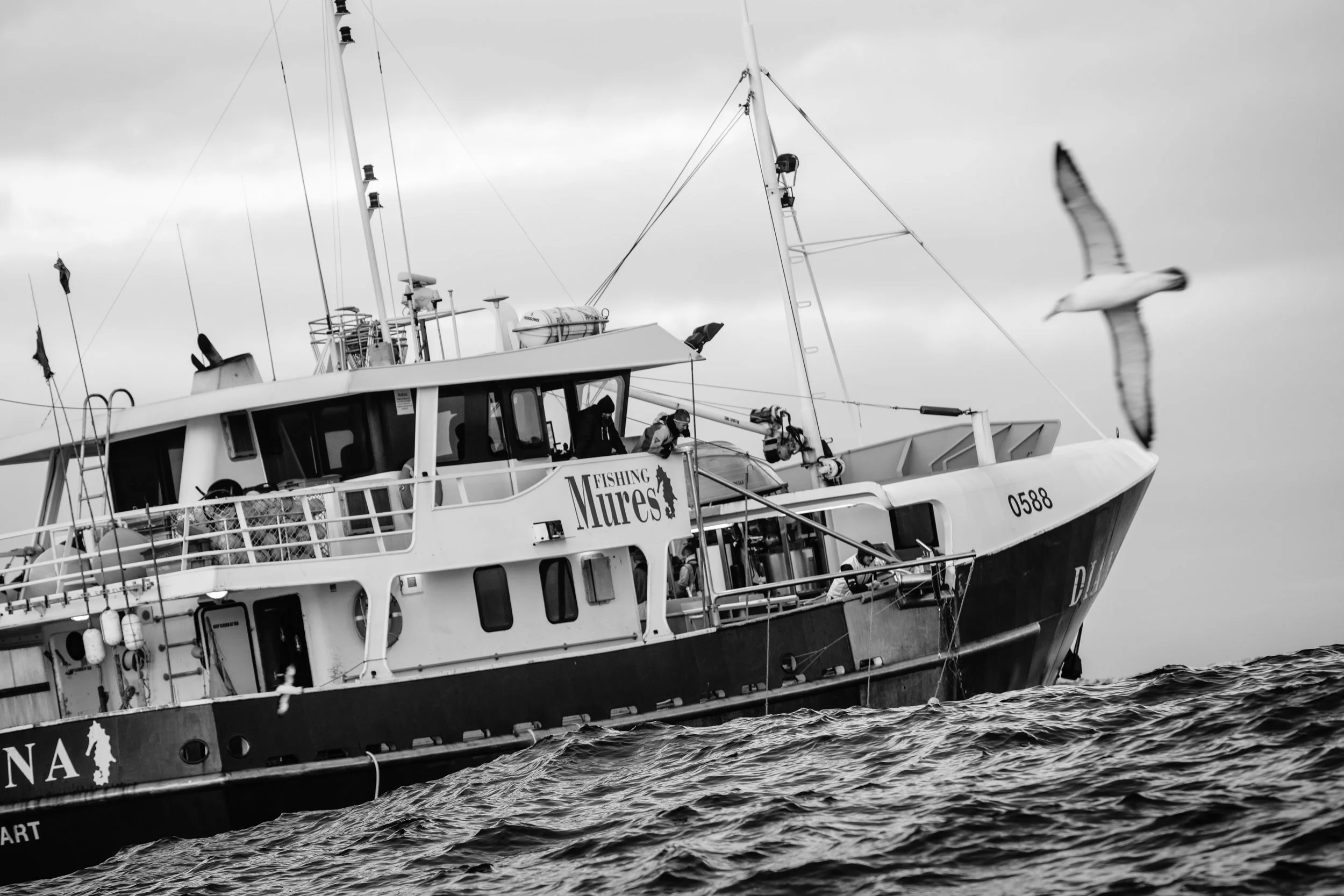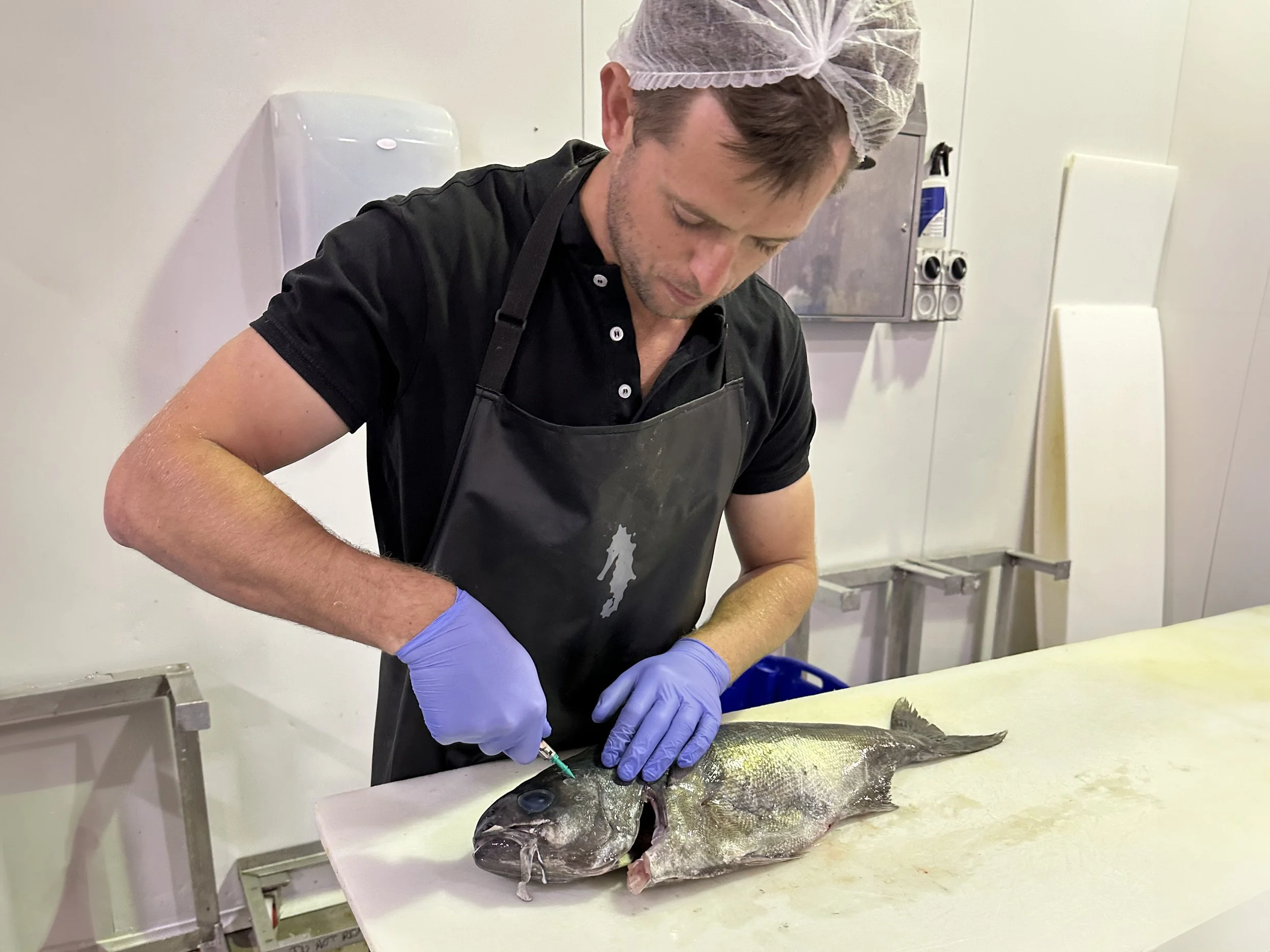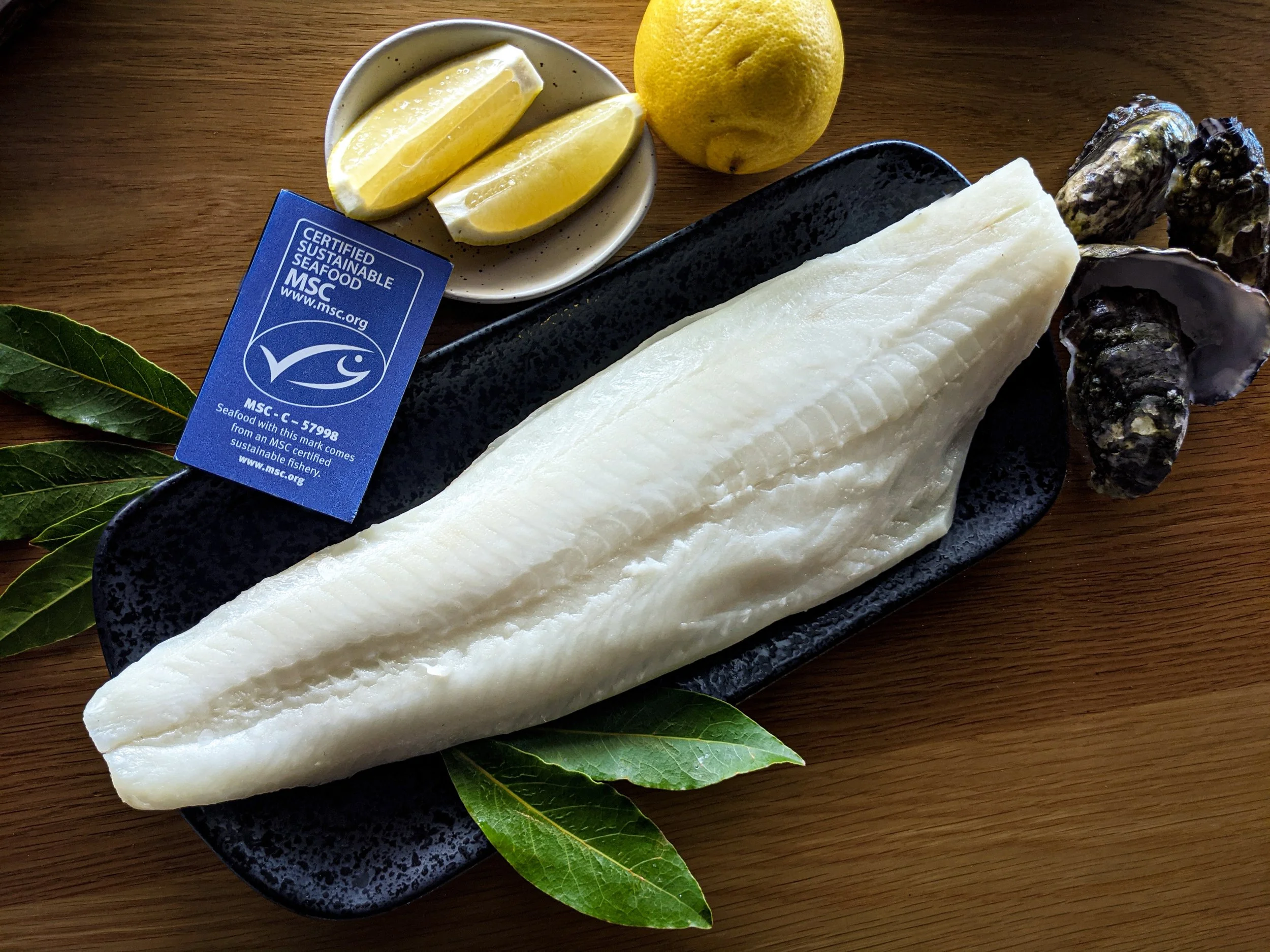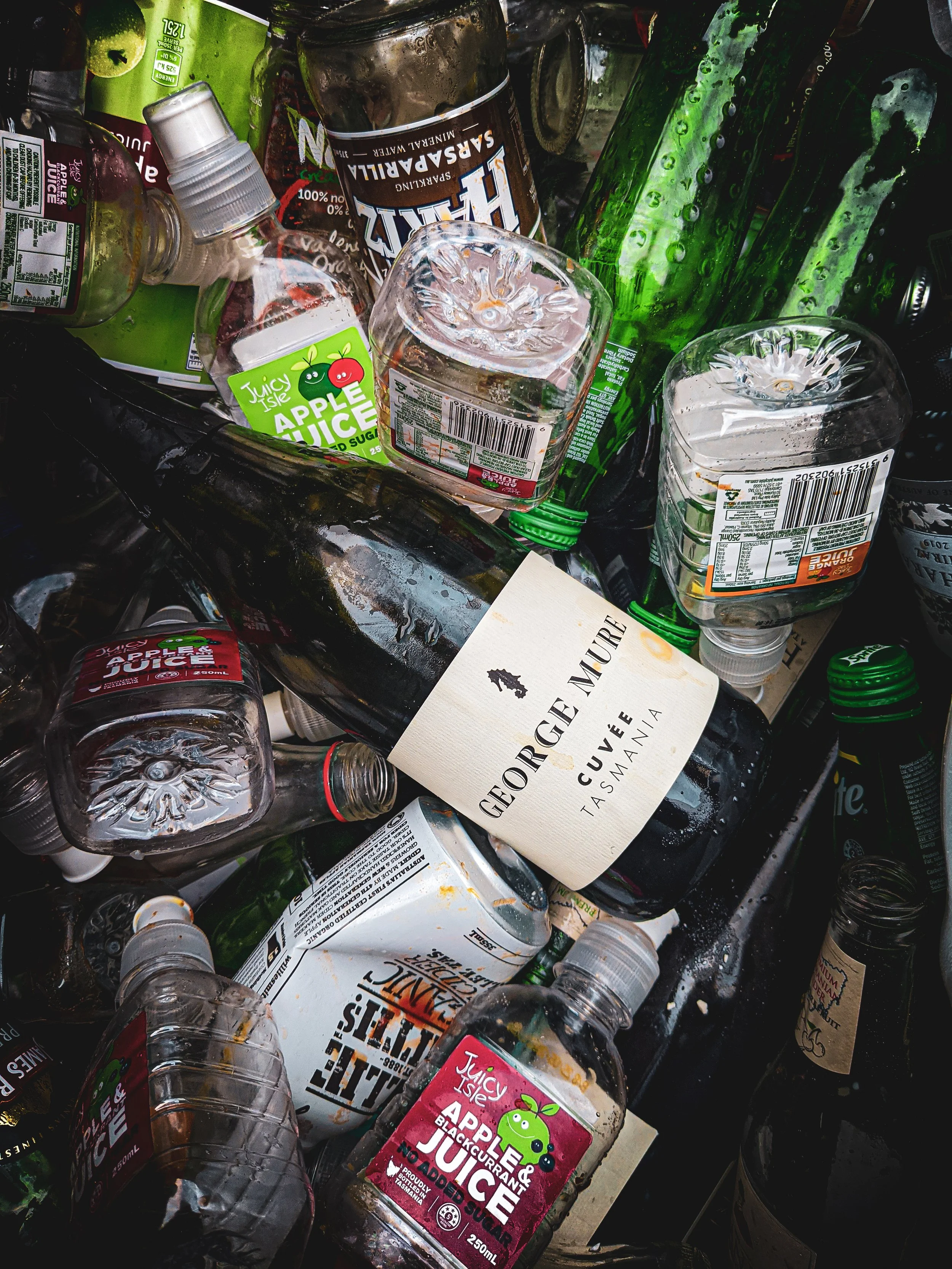
Sustainability
& Mures
Sustainability has always been a key part of the Mures mission, long before it was part of the current social issues that we face today. When Jill and George Mure first established Mures Fish House in 1973, they campaigned for the advancement of ecologically friendly fishing methods. Their values and ethos still inform the operational practices of our business to this day.
We are now a Sustainable Tourism Accredited Business and our commitment extends well beyond pure fishing methodologies. We continually explore the integration of eco-friendly practices in each department of the business, as well as providing educational opportunities for schools. The importance of the work we do now will protect our oceans and environment for our future generations.
Our commitment has been kindly acknowledged through industry recognition, with multiple awards achieved at the MSC & ASC Sustainable Seafood Awards, THA Awards, finalist in the Positive Impact Tourism category at the Tasmanian Tourism Awards in 2022 & 2023 and we have been honored as a foundation member of the Sustainability Tracker initiative.
To learn more about our ongoing initiatives, please see our commitments below.
Sustainability Mission.
Mures has made numerous investments in technology and choices of fishing methodology over the years that demonstrates our ongoing commitment to reducing environmental impacts.
Fishing Practices
-
Longline Fishing – Demersal longlining involves setting lines of hooks and suspending them from weights horizontal to the ocean floor. This method ensures minimal impact on the physical environment, specifically the sea-bed.
Species Specific Fishing – We set our hooks at a specific benthos type and depth to target only the species being sought, primarily Blue Eye Trevalla and Pink Ling. Whenever possible we use locally caught squid to bait the hooks. This is a direct natural food source for these species.
Industry Regulation – Our sustainability methods are not just operational guidelines, but are actual conditions of our Mures Fishing Permits. We have permanent cameras set up to monitor all of the fishing operations including catch rates and wildlife interactions (along with seabird welfare). We also carry AFMA appointed observers as required.
Seabird Welfare – To safeguard sea birds from our fishing line we; use heavy weights to ensure the baited lines sink quickly, set lines at night whenever possible, use Tori lines (streamers) to deter the presence of birds and dispose of offal in a bulk discharge beneath the surface to avoid attracting the birds to any fishing activity. In conjunction with the Australian Fisheries Management Authority (AFMA), we trialed the use of laser technology to further deter seabird presence.
Industry Contribution
In order to maintain healthy and sustainable wild fish stocks, we are involved in industry programs that prevent overfishing and track the health of the species we catch .
-
Australian Fisheries Management Authority – Director Will Mure is also a long-standing member of one of AFMA’s management advisory committees. This role involves discussions regarding setting quota and other fisheries management issues, which in turn informs current fishing practices. Over the years Will has contributed greatly to the AFMA, assisting in the development of practices for more efficient, sustainable management of Australian fish resources.
Data Collection - Mures Fishing is involved in a program where we harvest the otoliths (ear bones) from our line-caught Blue Eye Trevalla. The bones are collected and then sectioned to be read like tree rings to give an estimate of the age of the fish. This valuable information allows the industry to better track the status of fish stocks.
CSIRO Research Program - Mures staff have further completed CSIRO training on collecting DNA samples from Blue Eye Trevalla. These samples are then analysed as part of a research project led by Dr. Robin Thomson. DNA data is used to help estimate the population size, stock structure, and age of the fish. This research supports fisheries management decisions and helps ensure the long-term sustainability of commercially important species
MSC & ASC
In March 2020, Mures Tasmania became the first independent retailer in Tasmania, and only the second restaurant in Australia to achieve Chain of Custody Certification for Marine Stewardship Council (MSC) and Aquaculture Stewardship Council (ASC) certified products.
-
Mures has always strived to source seafood from well-managed, sustainable fisheries. This certification allows our business to actively source and promote MSC and ASC products to sell through our fishmongers and restaurants.
MSC and ASC are considered the highest global standard for responsibly managed wild fisheries and farmed seafood. MSC and ASC share a vision that global seafood supplies should be sustainable, responsibly managed and supported by secure supply chains.
Our customers can now make an informed decision on which product they wish to purchase, be it fresh from our fishmonger or when they dine in one of our restaurants.
For more information on each organisation, just click on the links above, and look for the blue and green ecolabels on your seafood to ensure we have a future full of fish!
Conservation
Many sensitive marine environments are now under threat from the impacts of global warming. Through Upper Deck and Kelp Bar we have partnered with the Great Southern Reef Foundation, to protect endangered Tasmanian Giant Kelp.
-
Kelp Bar - We have pledged $1 from every sea salt whisky cocktail sold in Kelp Bar will be donated to the GSRF to support their important conservation work. Learn more here.
Sea Urchin - This product is featured on the menus in both Mures Upper Deck and Kelp Bar. Sea Urchin is the greatest threat to Tasmanian Giant Kelp, as it grazes on it relentlessly. This threat stems from warming waters which allow urchin larvae to survive in Tasmania. By including it on our menu, we support harvesting efforts to keep numbers down and lessen it’s devastating impact.
Fish Utilisation
Mures has a team of expert filleters who ensure the highest possible recovery from whole fish to fillet. We also have a variety of sustainable practices to ensure minimal (if any) wastage.
-
Blue Eye Trevalla
We sell our fillets with the skin on or off. Mures Upper Deck utilises Blue Eye skin to create crackling for certain dishes served in the restaurant.
Blue Eye wings (the collar & fin section of the fish). This is often discarded but are frequently served in Mures Lower Deck. These wings have succulent, tender flesh and, once fried, crispy fins (yes, you can also eat the fins!)
All Blue Eye frames are kept to make our Fish Soups and Stocks which are very popular with our customers. We need the frame of every Blue Eye filleted to meet our soup volume demand!
Pink Ling
The main fillet is very versatile, and completely boneless.
We often serve Pink Ling Cheeks on our menu in Mures Lower Deck. These small medallions of meat are very tender and delicious. They are frequently available to purchase through Mures Fishmongers.
Pink Ling bladders (the swim bladder of the fish) are recovered and sold on to be dried and used in a variety of different products.
Oysters
Shucked oyster shell lids are put into gardens and landscaping.
Other Fish Species
We keep the heads and frames of a variety of fish species to use as cray bait for local recreational fishermen and are also sold to locals to make their own fish-stocks.
Mures Gourmet Products
We offer our own range of Tasmanian gourmet seafood products. This range was originally created to make better use of the entire fish, utilising off-cuts to prevent them being wasted.
Our wonderful team Mures Fishing are always constantly looking for more ways to maximise the potential of our seafood.
Eco-friendly Initiatives
From plastic reduction to recycling programs, we have a variety of practices in place at Mures Fish Centre to reduce our environmental impact. And we are always looking for more!
-
Plastic Elimination - We have eliminated BPA plastic, and reducing single-use plastic wherever possible at Mures Fish Centre. We now offer the following products in their place:
Takeaway cutlery – We offer Birchwood Bio Cutlery for all take-away orders. This is a product that is both biodegradable and compostable.
Straws – All plastic straws have been replaced with paper counterparts.
BioPak Containers and Cups – Our take-away packaging has all been replaced with BioPak products. This includes substituting our plastic cups for Bio Cups which are made from plant derived plastic, making them commercially compostable.
Glass Bottles - Over the last few years we have been focused on removing beverages that are bottled in plastic from our menu, and replacing them all with glass-bottled beverages.
Kegs - To further reduce bottle waste, we have switched to reusable milk and cider kegs and now generate no bottle waste from these products.
Cardboard Baler - we installed a cardboard baler to process the large amounts of cardboard waste generated from product deliveries for Mures Fish Centre. Cardboard is loaded into the compactor which compresses large quantities down into manageable bales. By compressing our carboard waste on-site, we drastically reduce the volume of the material and the space that it takes up, which also decreases the cost of the waste’s collection.
Fryers and Cooking Oil - we use Henny Penny Evolution Elite fryers across the business. These fryers are specially designed to recover temperature quickly, affording them a very high energy rating and helping our business to reduce energy consumption. They have also allowed us to reduce our oil usage by 7%. All the used oil that passes through our fryers is given to Johnson’s Used Oil Collection and sent to the mainland to be converted into Biodiesel. Biodiesel is a carbon neutral product considered to be a green alternative to diesel in that it is rapidly biodegradable and completely non-toxic.
Carbon & Energy Reduction - Mures Lower Deck currently runs two pellet heaters near the main and back entrance to the restaurant. These heaters have the lowest emission rate of any wood burner available in Australasia in that they are virtually smokeless. Pellet fuel not only reduces dependence on finite supplies of fossil fuels like oil gas and coal, it is carbon neutral, which means by utilising these heaters we are not contributing to greenhouse gas.Laundry needs for the restaurants are also processed on site, and we recently made a change from an electrical drying unit to a new gas-operated industrial model. Gas has a 90% higher yield rate from extraction to delivery compared to electricity making it far more efficient and more environmentally friendly.
Water Conservation - We replaced our domestic top-loader washing unit and invested in a new industrial front-loader model, Speed Queen. Front loader washing machines use roughly 50 percent less water than top loaders. The sump system design installed in this unit also uses 11% less water than most other industrial front loaders, decreasing our water usage in this area by over 50%. This make also has high G-Force extraction which removes significantly more water from each load, reducing our energy costs and drying time.
Carbon Reduction
Although a lot of our everyday practices contribute to directly lowering our carbon footprint, we have a three year carbon emissions reduction program in place.
-
Please see our full carbon reduction plan HERE.
Customer Incentives
We encourage our guests to make sustainable choices wherever possible, and are participating in several programs that make this easier for our guests to achieve.
-
Water Refill Station - We have a complimentary Vestal filtered water station in Mures Lower Deck. We were the prototype business for this style of water system, and it was installed to encourage customers to use reusable water bottles and cups, while also ensuring the elimination of single use plastic water bottles from the business. Customers can choose from sparkling, still and cold water on tap.
As part of the City of Hobart’s Water Refill Program, we are also registered on “Tap – Find Water Anywhere”. This app is available from the App Store and Google Play which anyone can use to locate their nearest free water refill station.
USE TAP TO FIND A WATER STATION.Reusable Cups - We have established a 50c discount for all beverages purchased from the café in Mures Lower Deck (eg. tea, coffee, milkshakes etc) if the customer is able to provide us with a reusable cup. Lower Deck as a participant in the Responsible Cafes movement, which tracks businesses who offer such incentives.
FIND A RESPONSIBLE CAFE NEAR YOU.
Education Programs
Mures Fish School, a specific curricular based activity designed to introduce classes from Prep through to Year 6 to sustainability and what that means for the fishing industry.
-
Lessons are designed to promote awareness of what it means to fish sustainably and the impact of the Australian Fisheries Management Authority and local government on the industry.
Fish School recognises the importance of exploring the problems of the past to safeguard the future. A core component of the lessons is to teach the younger generations about how the industry has overcome past problems such as overfishing and damage to sensitive marine habitats, and the importance of the work being done now to protect the oceans for forthcoming generations. It is emphasised throughout Fish School that not one type of fishing is better than another, but that each have their own place within the industry and, with the right regulations, can be managed accordingly.
This is a free program with no costs associated for the participants, motivated by the Mures family’s own passion for the work done by the seafood industry. Since the introduction of Fish School, Mures have had over 600 students attend and participate, each one leaving with a “Sustainable Fish Champion” certificate.
Expressions of Interest
Contact Jock Mure
(03) 62775500 | jock@mures.com.au
